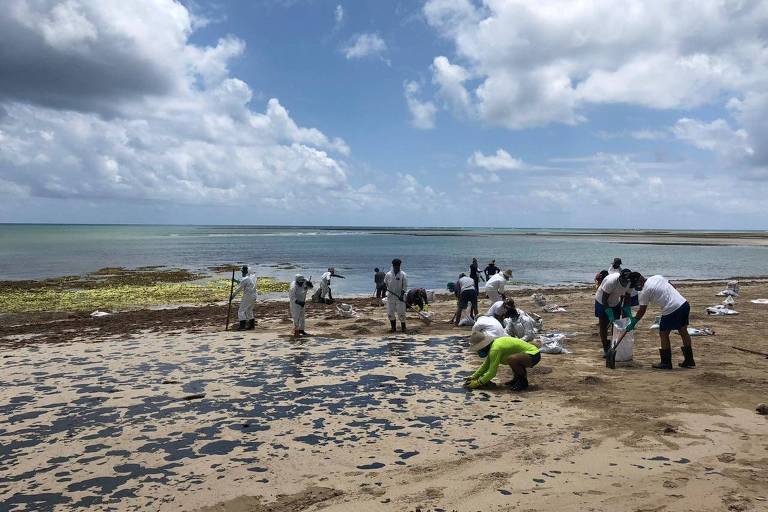Four months after the first oil slicks on Northeastern beaches were registered, Northeast Brazil faces double pollution on its coast with the presence of microorganisms and chemicals considered harmful to human health.
The low sanitation coverage and the irregular sewage disposal make one-third of the beaches improper or inadequate for swimming, an analysis that takes into account the presence of bacteria present in human and animal feces.
New oil slicks have stopped arriving on beaches, but the beaches still coexist with the oil is embedded in the sand, rocks, and coral reefs.
A group formed by the Navy, the National Petroleum Agency, and Ibama report that the scenario is stable. However, there are still sparse traces of spots in the states of Alagoas, Sergipe, and Bahia. In all, about 5,000 tons of oil have been removed from the 11 affected states (all nine in the Northeast plus Espírito Santo and Rio de Janeiro).
The environmental disaster has not changed the beach monitoring dynamics. In general, the environmental agencies of governments and municipalities only perform a biological analysis of the waters.
Agencies such as Bahia and Pernambuco conducted spot chemical analyzes to verify the content of petroleum-derived substances such as benzene, toluene, and xylene considered harmful to human health.
Although it found no toxic substances, the Bahia agency recommended that swimmers avoid entering the sea when seeing oil on the beaches.
For Francisco Kelmo, director of the Institute of Biology of the Federal University of Bahia, the results of the analyzes are insufficient to guarantee that the beaches are suitable for swimming. "This soap opera is not over. The situation is still worrying, and the safest is to wait a few months until the complete removal of oil on the beaches," he says, noting that the contact of oil with the skin can generate dermatitis, nausea, and vomiting.
42% OF POPULATION THINKS GOVERNMENT FAILED
The Datafolha survey points out that for 42% of the population, the Jair Bolsonaro government has performed poorly or horrible in dealing with the oil spill that has hit the Brazilian coast since August.
Another 31% considered the government's work average, and 23%, great or good. The government was slow to comment on the disaster and made unspoken conclusions.
Translated by Kiratiana Freelon
